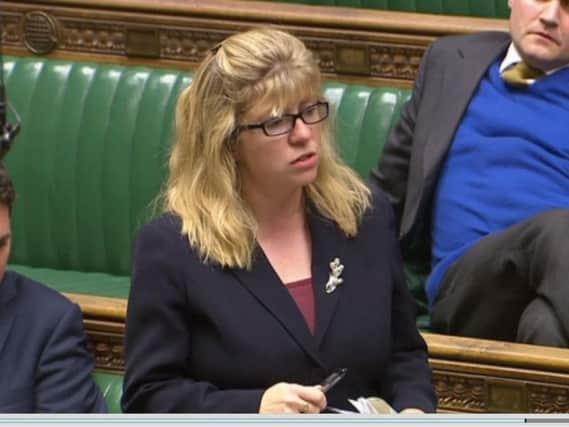A huge honour to take over the Prisons (Interference with Wireless Telegraphy) Bill


It is a relatively short Bill but the powers that it will enable will be far reaching and be able to change the way that prisons and their staff are able to operate for the better.
At the moment the law states that mobile phones are illegal in prisons, with a maximum sentence of up to five years imprisonment for possessing one. However, this has not deterred criminals from smuggling them into prisons as the number of phones found in prisons has been increasing year on year with 20,000 of them found in 2016 compared with 17,000 in 2015 and 10,000 in 2014. Prisoners are using them for a range of further illegal activities such as arranging the smuggling in of illicit materials such as drugs, intimidating witnesses, filming and intimidating prison staff, or continuing to operate their previous criminal activities in the community from behind bars.
Advertisement
Hide AdAdvertisement
Hide AdNow it is certainly not the fault of prison officers or governors that so many are getting into prisons. A prison is itself a micro community where in a single day a prison with a capacity of 1,000 can receive approximately 50 new prisoners, 300 visitors, 3,000 items of post, 44 vehicles and its prisoners can make 5,000 minutes of legitimate telephone calls. With this much activity going on it becomes incredibly difficult to safely ensure that no mobile phones are getting through.
Currently individual governors can request individual mobile operators to block presently available signals in their own prison. But as soon as 4G became available the blocking of 3G became irrelevant and the technology used out of date. This Bill will give the Secretary of State the power to ask all mobile phone operators to block mobile and data signals to illegal mobile phones within the country’s entire prison estate. The Bill is unique in that it will apply to all future technologies that become available, it will therefore not only give the power to block out currently available 3G or 4G signals but also any new upcoming signals such as 5G. The mobile operators will be best placed to do this as they will have the technological experts able to block new signals as and when they are available.
Now I do understand that some prisoners use illegal mobile phones for more legitimate reasons, such as contact with loved ones. Research, including the Farmer review, has shown that maintaining contact between prisoners and family members is crucial. Ministry of Justice research shows that prisoners who maintain contact with a family member are 39% less likely to reoffend than those who cannot. The Ministry of Justice is working on a program of increased access to legitimate phone services in prisons including in cell phones pre-populated with allowed numbers, such as family or support services like Samaritans. If I was not confident about this work, I would not be recommending the Bill.
I believe that this Bill will make our prisons safer for inmates and staff as well as making our communities safer by ensuring prisoners cannot contact those they are being purposefully kept aware from by a sentence of incarceration.
I am pleased that the Bill passed its Second Reading on 1st December and I look forward to taking it through Committee Stage in 2018.